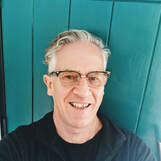|
NEWS FROM THE THERAPY ROOM. Tips and strategies that you can use in your own relationships. |
 Tena koe - thanks for stopping by! In this neck of the woods, the days are closing in, after the most amazing summer that I can recall. The mornings are already chilly, and a couple of days a week I have an early start, so I'm already leaving home in the dark. I hope your summer was good to you - or if you are in part of the world where yours is still slowly winging its way to you, grab it when it arrives, and use it well. What I want to mention briefly here is something that I've been needing to remind myself of lately. It's kind of like it's fresh out of Therapy 101, so I can't believe that I sometimes overlook this. But it's very easy, when I'm meeting with new clients, to get caught up in wanting to fully understand what their issues are with each other, because this is very important for them, and therefore for me. What that really important thing is, that if the couple or family members I'm sitting with are to have a shot at doing some things for the better, is to draw their attention to this very simple (yet very significant) concept: change begins with me. Time and time again I encounter someone in a family or a couple relationship, who will sound completely plausible, and equally logical, as they voice their expectations about how someone else needs to change: "if only you would do blah blah blah, then everything would be fine...." The reality is of course, that we cannot reasonably expect anyone else to change - not for us, or for anyone. In fact it's quite presumptious to expect someone to change some part of their being or their functioning on the basis that it doesn't suit me, or that it annoys me. What I always want to point out to clients is that first and foremost we need to change ourselves. In fact we can only change ourselves. In any relationship, there is usually stuff that needs to be done differently by everyone who is involved (unless the very same players can state in unison that things are fine just the way they are - in which case they won't be needing therapy anyway), regardless of the type of relationship. And it's surely therefore more honourable to see what I can do differently first - and changing myself is certainly something I have control over. And the big thing here, is that if I have some success at doing things differently, then I'm likely to feel better about myself, and that can only be good. And if I do change myself, then there is a good chance that the other person is likely to then reciprocate and also do something slightly differently themselves. And even if they don't, sure it might be disappointing - but I can still reassure myself that I had some integrity, that there were some things I needed to differently, and I went ahead and did them anyway. That I was at least able to change my part in the relationship. Plus if I change, and the other person still chooses not to, what does that tell me about their commitment or energy for the relationship... Keep in mind too, that I'm not advocating that we cannot expect people whose behaviour might be dangerous, or addictive, to change. We can point out the impact of their behaviour on ourselves and others, and also be clear about what we will now do differently, if they decide not to change. Or if they do. "If you haven't worked on changing yourself, it's a bit of a cop-out to say your relationship is hopeless, because your partner won't change." Dr Bill Doherty "When people are ready to, they change. They never do it before then, and sometimes they die before they get around to it. You can't make them change if they don't want to. Just like when they do, you can't stop them." Andy Warhol. Have a good week - talk soon! |
"Some occasional thoughts about families, relationships, and other things that distract us...."
Categories
All
|
- This is not an emergency service. Information on these pages is not meant to take the place of input from a registered mental health professional in your community.
- For urgent or crisis mental health care in the Christchurch, New Zealand region, please call Freephone 0800-920-092 (24 hours x 7 days).
- Family Therapy Christchurch | Couples Therapy Christchurch | Couple Counselling | Relationship Counselling | Family Counselling Christchurch

 RSS Feed
RSS Feed